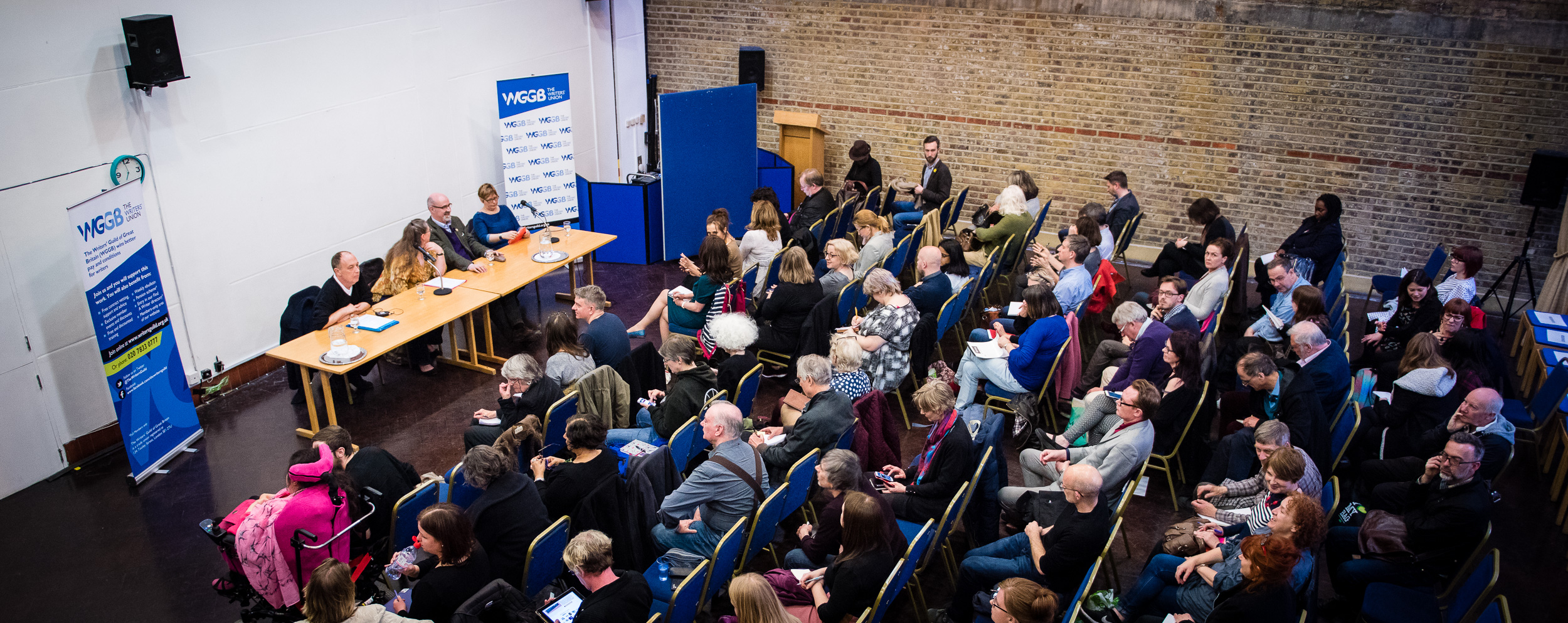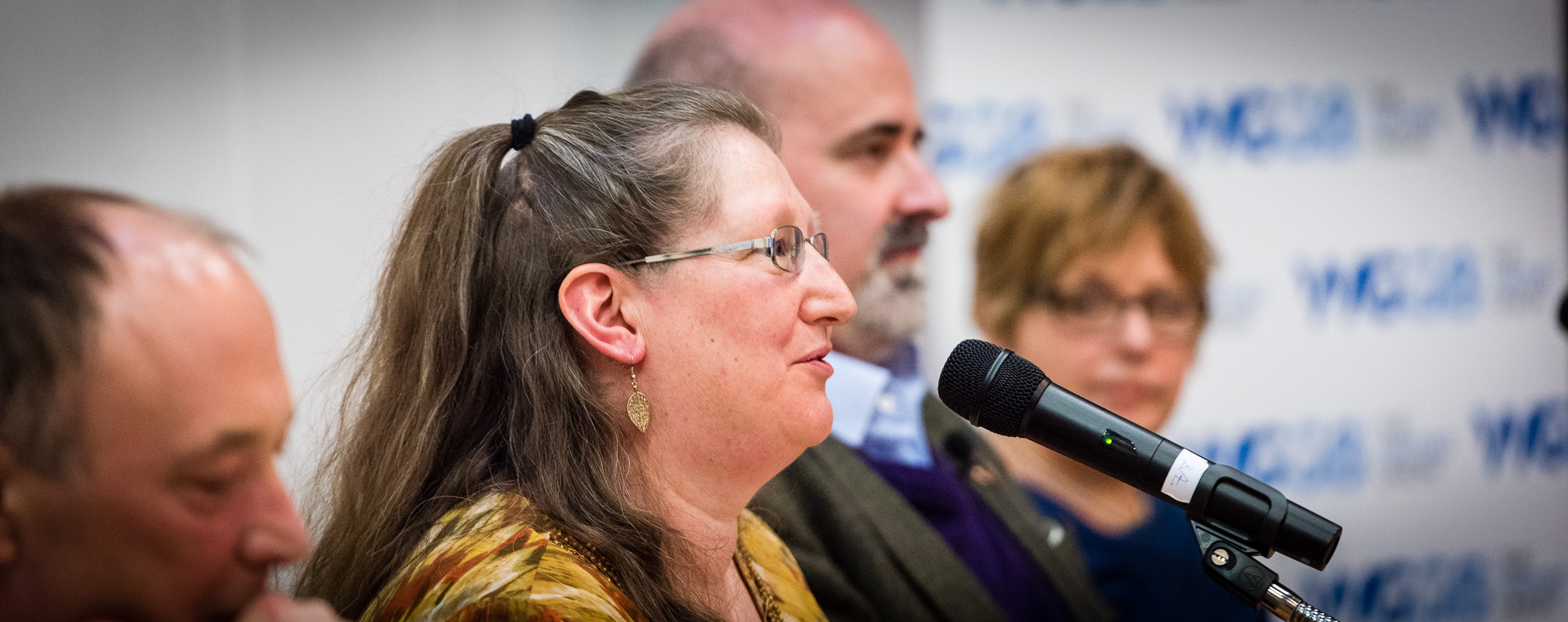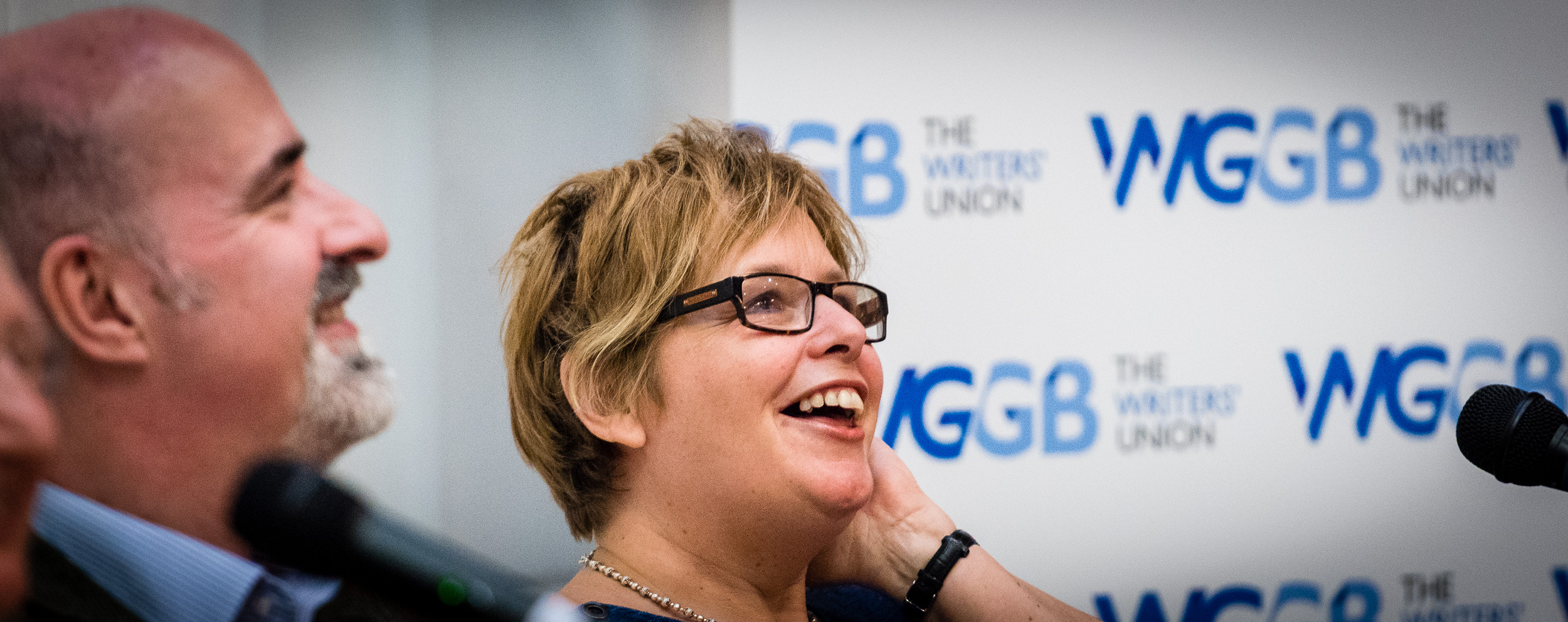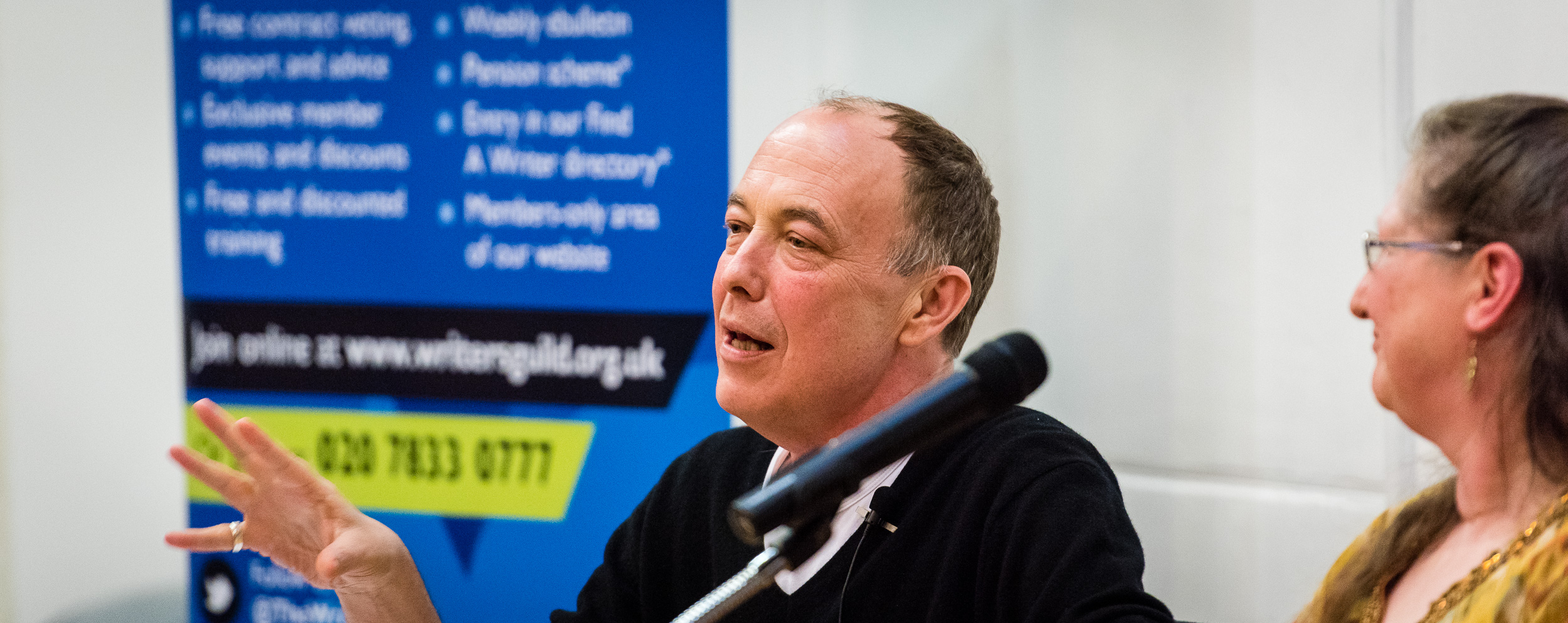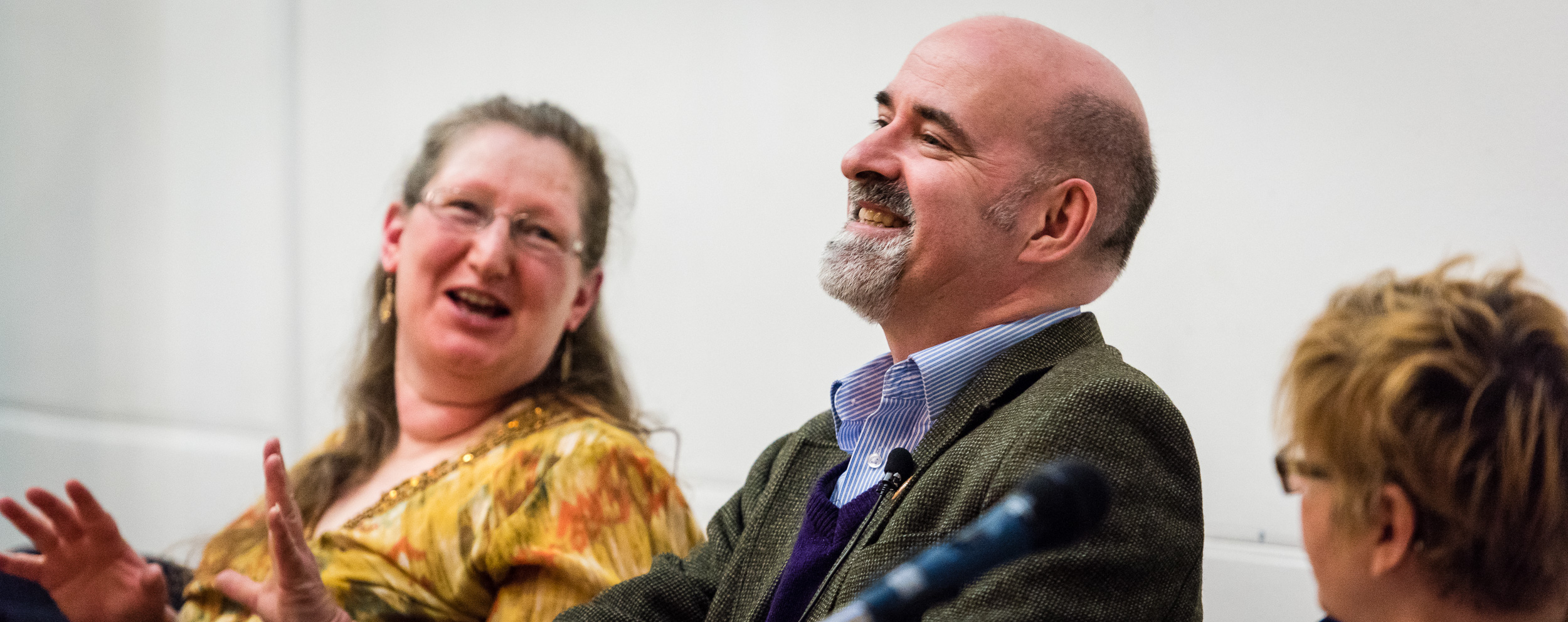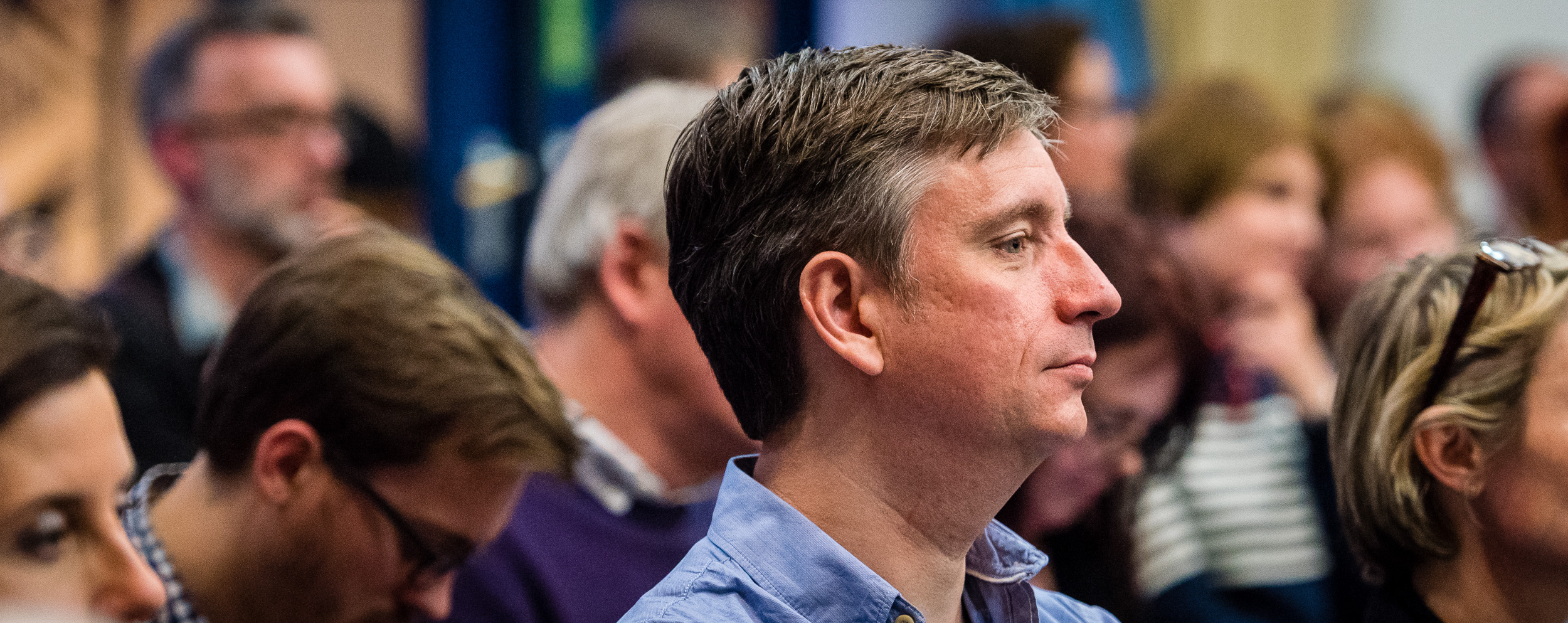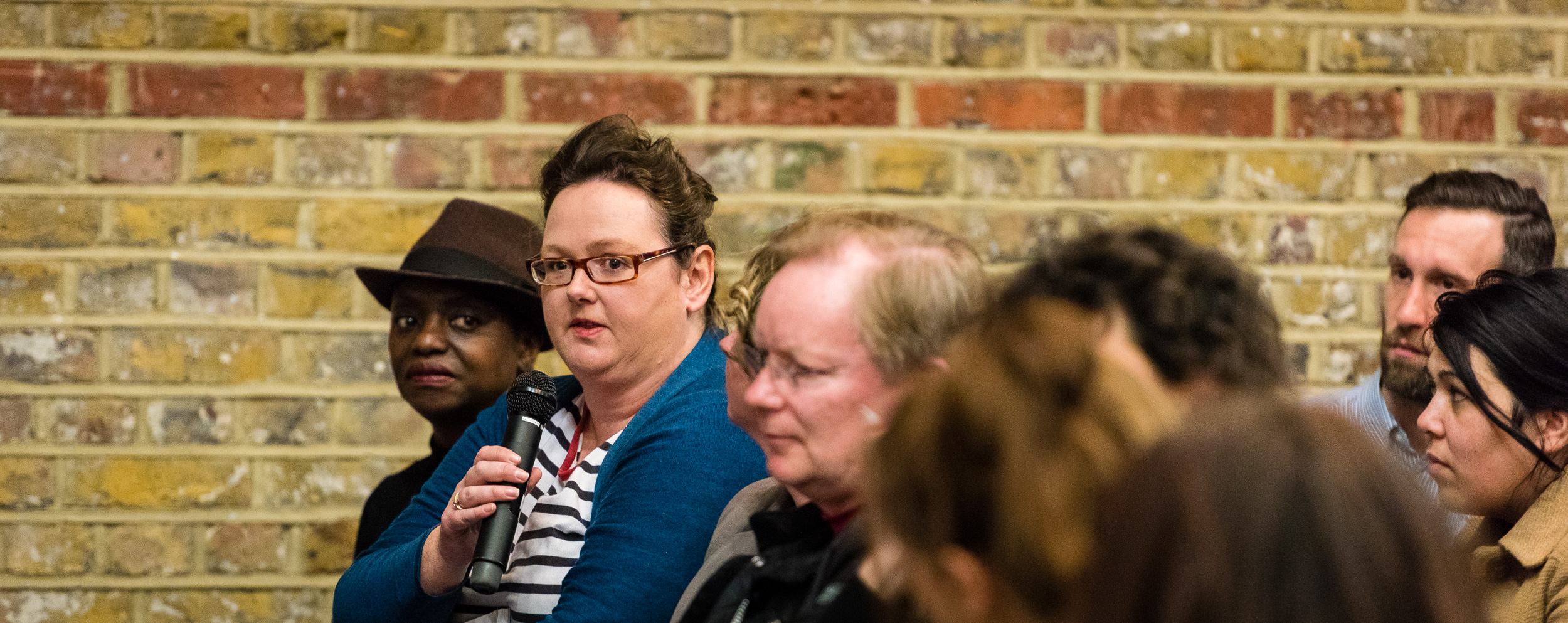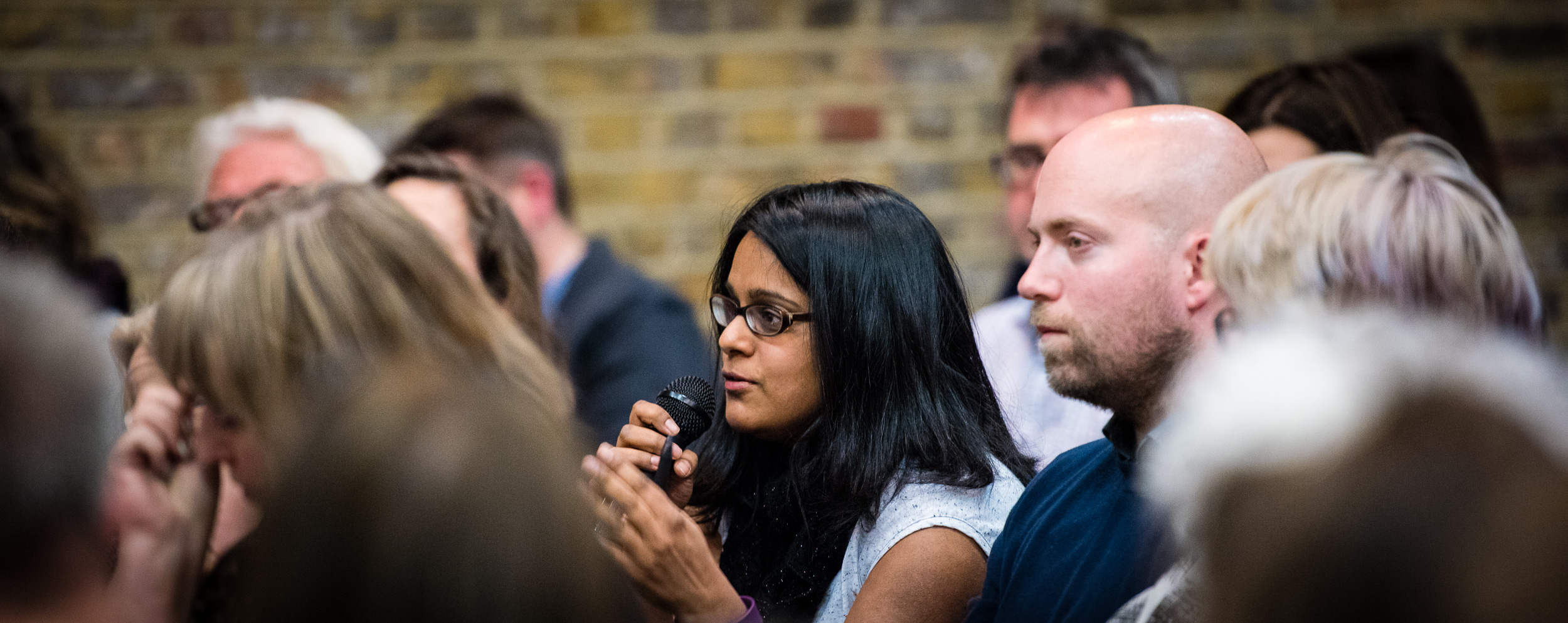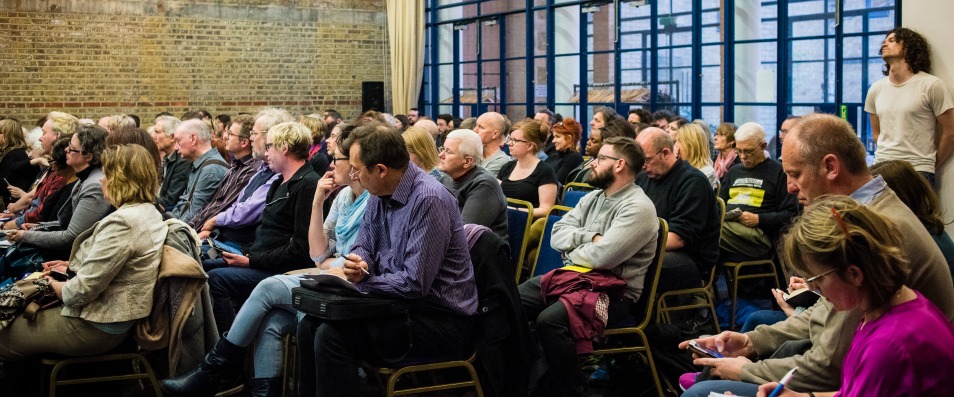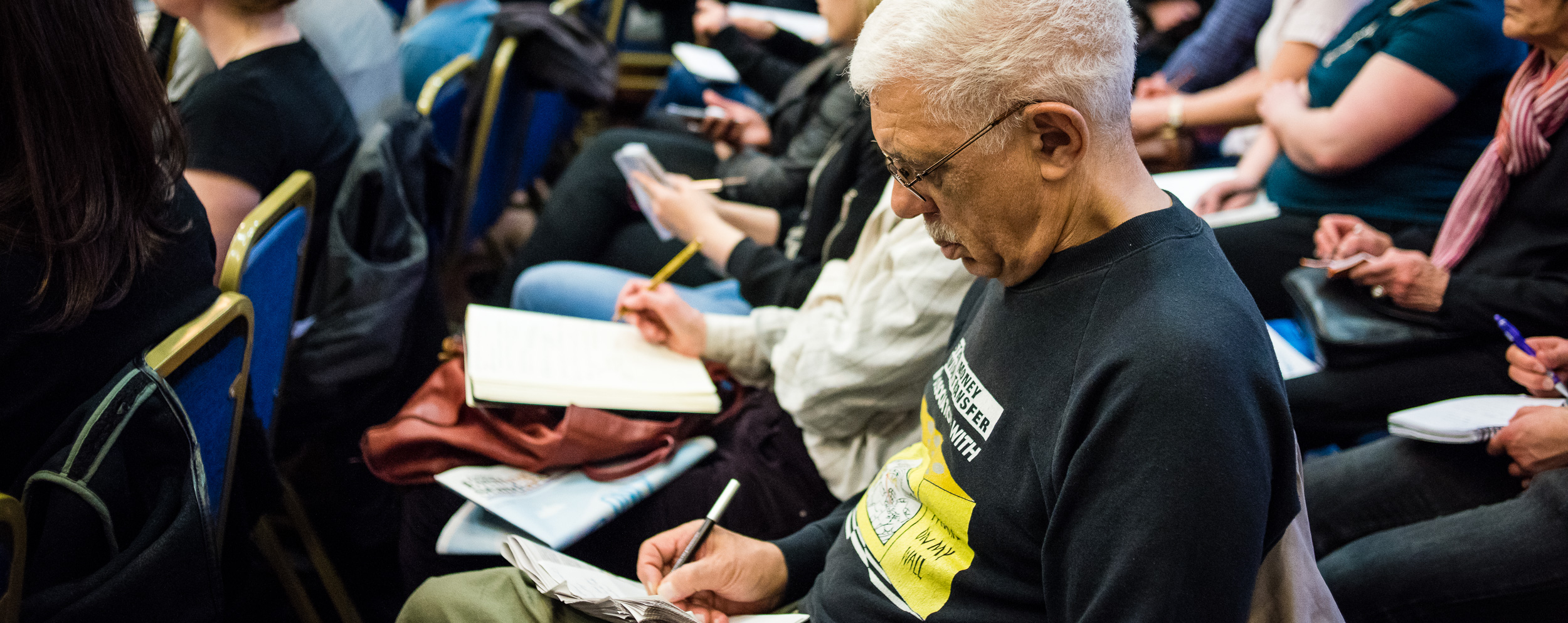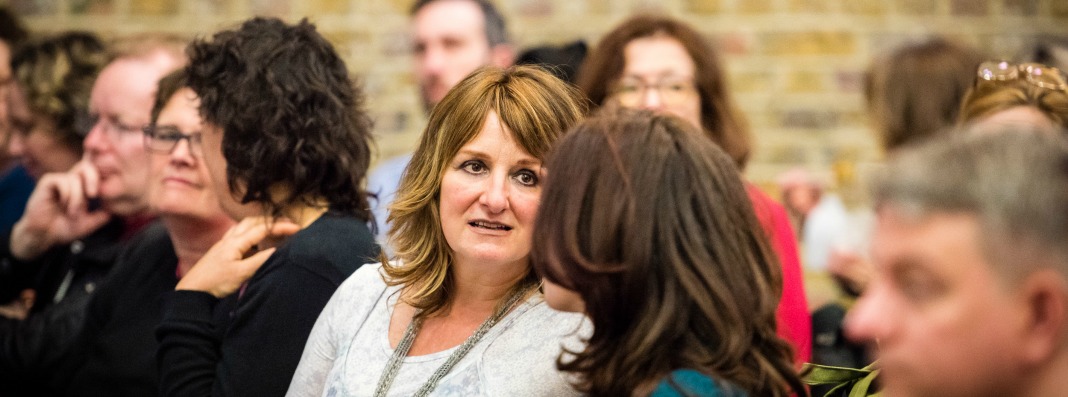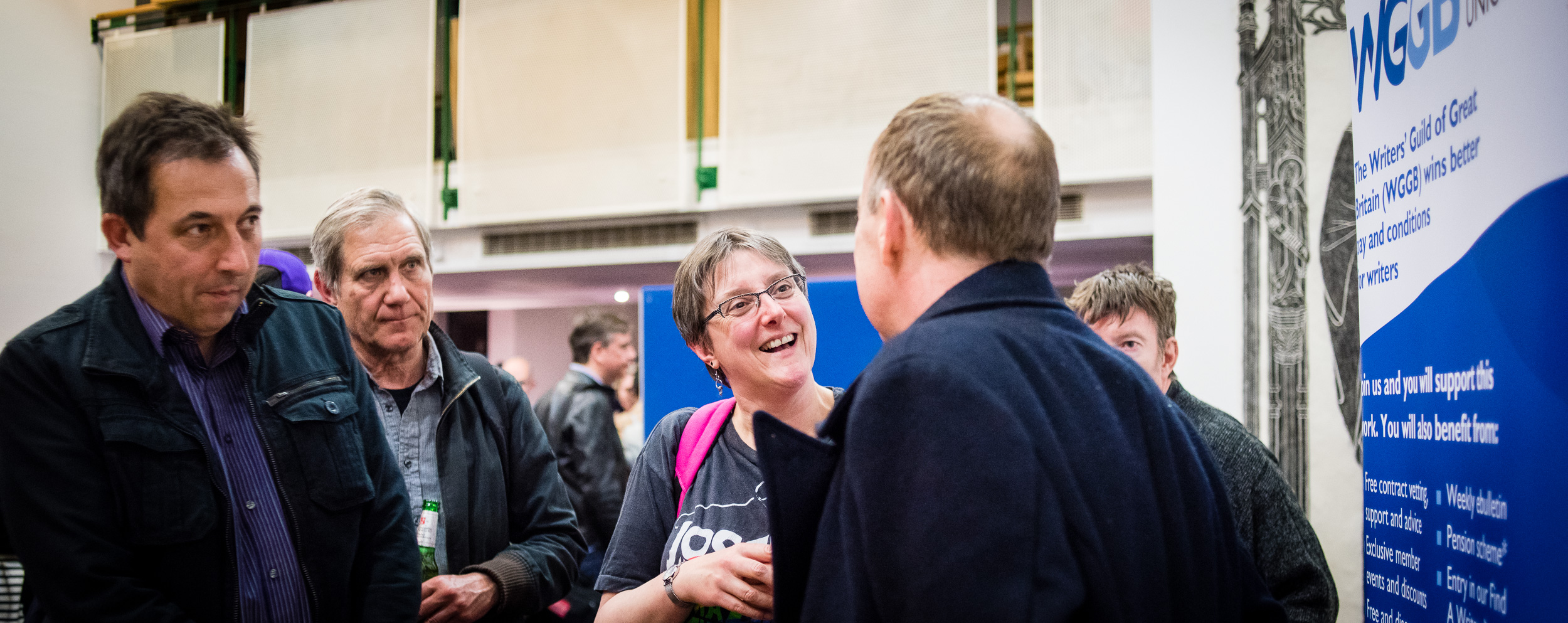Two Somalian girls dealing with Female Genital Mutilation; a 10-part drama on ancient Egypt; a disastrous school trip to Paris; an Archers domestic abuse storyline that gripped the nation… These were just some of the recent audio drama highlights rounded up by WGGB’s Radio Chair Katharine Way at the Meet the Radio Drama Producers panel event on 21 April 2016.
Introducing the panel, organised by the WGGB London & South East Branch, Way concluded that radio drama offered infinite possibilities and was a “wonderful playground to play in” as a writer.
An audience of 150 gathered at the St Alban’s Centre in London to hear producers Sally Avens, Marc Beeby and Nicholas Briggs share their dos and don’ts for writing for a medium that they all professed a deep passion for.
Sally Avens, who has been working as a radio producer and director since 1990 and was executive producer for the Friday Play, talked about how she started out as a secretary at the BBC, progressed to production coordinator and then to a producer on Radio 5. Through a varied career since then she said “radio was my first love and I’ve always come back to it. It’s just you and the writer, it’s not produced by committee.”
Marc Beeby, radio producer for the BBC whose work includes the fantasy series Pilgrim, started out with a career in education before moving to the World Service. His parents were actors, he said, and he grew up with radio, which was always an “itch I wanted to scratch.”
Nicholas Briggs, co-executive producer of Big Finish Productions, well-known for its Dr Who range of audio plays, started out as an actor who had always had a love for writing. “I have been writing since I was six. I used to write a book an evening.” What started out as a hobby with a group of friends has now turned into a successful business.
Throughout the evening the panel shared numerous tips with writers wanting to break into or develop their careers in radio. Sally Avens said that if you had never written for radio you should look at the 45-minute Radio 4 afternoon drama slot. There are two windows per year, and guidelines on the commissioning process are available on the BBC website.
While Nicholas Briggs said that Big Finish Productions (for legal and historical reasons) was unable to have an opens submission process, Sally Avens pointed out that some independent production companies are on the look out for new writers and it’s well worth doing the research.
All three panellists agreed how difficult it was – despite their best intentions – to find the time to read unsolicited scripts. Sally Avens and Marc Beeby highlighted the BBC Writersroom as the best place to start. Sally Avens also recommended writing across mediums: “Get your work out there” – you can’t make a living in just radio drama. Work in other areas too.
Other tips that emerged included:
• Write what you’re passionate about, don’t try to second guess what producers are looking for.
• Don’t have too many characters and avoid having some of them not speak until the last page of the scene.
• When pitching, don’t overwork it or make it too complex – keep it clear and simple. How would the short three-line billing read in The Radio Times?
• Don’t send an idea, send a script – producers need to know that you can write. It’s the quality of the script that will make the difference in the end, but don’t badger.
• Do your research into all the different slots available.
• The Radio Independents Group website is a useful starting point for research.
• Listen to as much audio drama as you can and read lots of scripts. The BBC Radio Script Archive is a good starting place.
• The BBC Writersroom will read the first 10 pages of a script. If it hasn’t grabbed them by then they will send it back.
Marc Beeby also shared with the audience the acronym GOFCOR (Good on Film Crap on Radio) and warned not to fall into that trap.
The close relationship between writer and producer was described by Sally Avens as like a marriage: “As a producer you love their voice. You love what they write… You will argue, you will fall out, but you will compromise and want to get back together.”
Marc Beeby agreed. “There can be a lot of pleasure in talking about the idea. There is just the writer and producer and nobody else interfering. Writers are incredibly important to us… The writer understands the medium and allows you to do exciting things with sound. It’s a very fulfilling venture.”
Nicholas Briggs also praised the importance of the working relationship between writer and producer: “We all learn, and we all get surprised from time to time.”
The BBC audio drama process – from pre-offers through to going into the studio – was outlined to the audience. Sally Avens said once the writer got the commission “we set off on a voyage of a number of drafts” which lasted up to a year. Once it goes into the studio, a 45-minute play would be produced in around two days.
Nicholas Briggs said that at Big Finish they release their audio drama on their website as CDs and downloads and have 200 productions this year. They have evolved a team of writers over the years and it is a challenge finding new writers, particularly in the sub-genres where you need specialists.
The panel agreed there was a good future for radio drama and an appetite for listening to it. The Radio 4 afternoon drama slot has an audience of around one million, and podcasts and downloads have been extremely good for the medium.
Marc Beeby highlighted the need to reach younger audiences and said he didn’t necessarily buy the argument that radio drama was just something people “grew into”. He also highlighted the imaginative approaches of other European countries like Germany, where broadcasts take place in interesting locations.
Questions from the audience included advice on writing radio comedy, transferring a stage play to the radio, the function of BBC regional offices and how to negotiate the submissions process when producers are so busy and the BBC Writersroom gets such a huge number of spec scripts.
Marc Beeby admitted that “camels and eyes of needles come to mind here” and “we don’t want to turn anyone away.” Sally Avens reflected his comments, saying it was “tough and incredibly competitive” but it was important to keep trying. There are new writers being commissioned all the time and if you persevere it can happen.
All photos by Em Fitzgerald

